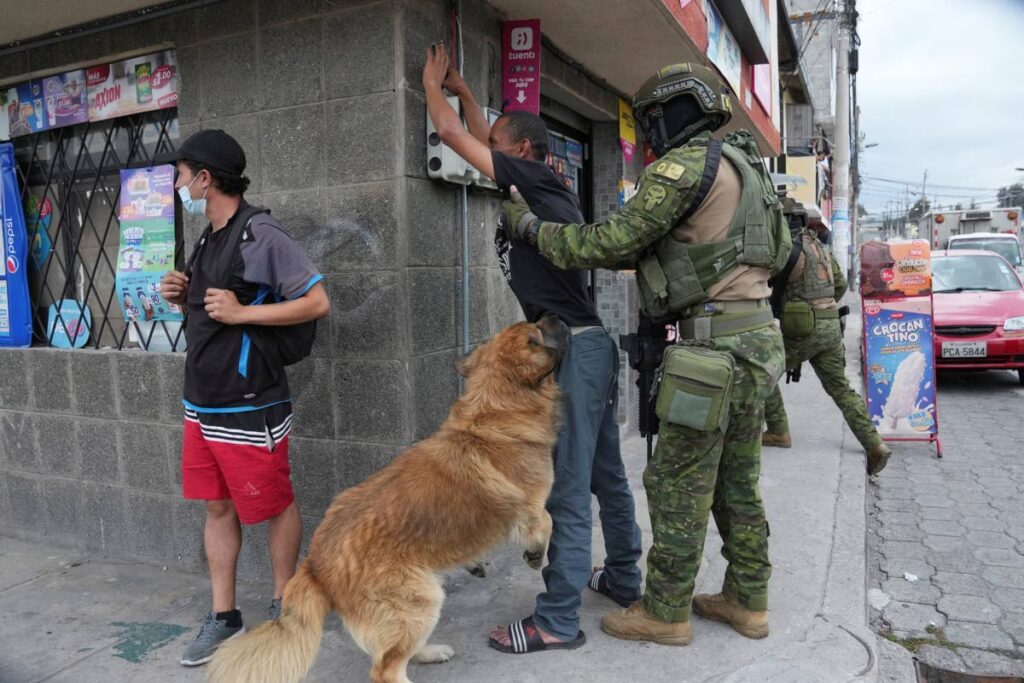Eerie Ecuador echoes

THE EERIE and distressing scenes coming out of Ecuador this week would have been, for many people in this country, unnerving reminders of the terrible events of July 1990 in our capital city. Our sole television station in those days, TTT, was stormed by armed insurgents who took over the airwaves, traumatising members of the media, whom they held captive, as well as the nation at large. Simultaneously, insurrectionists held the Cabinet hostage at the Red House.
But whereas our 1990 experience related to an Islamic sect that plainly wished to terrorise the ruling NAR government openly, events in Ecuador this week relate to more murky developments in that country’s criminal underworld.
A three-month state of emergency was declared on Monday after Adolfo “Fito” Macías, a notorious gangster, vanished from his prison cell. The next day, gunmen stormed a public TV studio in the city of Guayaquil during a live broadcast and bombs were set off around the country.
Meanwhile, 178 prison staff have been held hostage by inmates, further escapes and acts of violence tied to gangs have occurred and police officers have been kidnapped, though the relationship between some of these incidents, if any, is not clear-cut.
The drastic and sudden breakdown in order has resulted in empty streets, closed schools and entire communities becoming ghost towns, in a manner reminiscent of the height of the covid19 pandemic. China closed its embassy.
All of it seems a reaction to Daniel Noboa’s drive to contain the influence of gang leaders. Mr Noboa, whose administration is just weeks old, came to power in an election marred by the assassination of Fernando Villavicencio, a presidential candidate and journalist. Mr Villavicencio had reported receiving death threats from Fito days before he was shot while leaving a rally in Quito.
The descent is one of the most dramatic illustrations of the long-term implications of the infiltration of gangs into all facets of a society. At stake is Ecuador’s definition of itself: is it a narco-state or democracy?
Mr Noboa has had plans to introduce profound changes to reduce violence, such as lengthening prison sentences for serious crimes and having the military eradicate international syndicates in the country.
But this week’s developments suggest the gangs will not go quietly. The seemingly co-ordinated nature of their assaults suggest a unity of purpose that is a direct challenge to the authority of the government.
Such systemic violence is a fact of life in Latin America; it is relatively new to Ecuador which has only seen a spike in murders and violence in recent years. This spike has been linked to regional shifts in the drug trade. Neighbouring states have ended key security collaborations.
It is a cautionary tale of where countries might be headed if gangs are allowed to reign.


Comments
"Eerie Ecuador echoes"